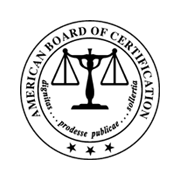
506 N. Armenia Ave. Tampa FL 33609 | 813-870-3100
Means Test:
One of the most important, and most complicated parts of analyzing a potential bankruptcy case is the means test. This is a type of budget test added by Congress in the 2005 bankruptcy law. It takes the average gross income earned by the debtor over the six months ending the month prior to the date the case is filed, and compares that to the median income for the debtor's family size in the state the debtor lives in. If the average income for the 6 months period is less than median income, the test is passed. If not, the court presumes a number of expenses based on the family size and location of the debtor, but then there are a number of adjustments that need to be made to these presumed expenses based on the debtor's actual circumstances.
The test often can be both an art and a science. The first issue is what counts as income? Generally, any money coming into the household, including income of debtor's dependents, will count. There is some conflict in the cases as to whether sale of property counts as income, if it is not an ongoing source of funds, but most cases appear to indicate that this does. There also is some conflict as to whether withdrawals from pensions, retirements, or IRAs should count as income. This may depend on the circumstances of the case, but often these also would count. It is important to note that gross income rather than net income is considered. If someone outside the household makes regular contributions to assist with the debtor's household expenses, this must be added as income. The question must be examined how regular such contributions are.
If debtor owns a business, it may depend on whether the business is incorporated or not as to income. If the business is incorporated, only the income actually paid to debtor usually counts. If it not incorporated a number of cases assert that the gross income into the business counts, then expenses of the business are listed in the separate expense portion. It is generally better to be able to deduct the expenses in the income portion of the test, as that can make it easier to pass the test as being below median income.
The next question is the household size for the debtor's household. Again, this may not always be as simple as it seems. There are cases that set the household size as the number of heads sleeping in the house each night, the number of persons claimed as dependents on the tax returns, or cases that simply look at what is the household's economic unit. The latter is probably best keeps with the intent of the legislation. This looks at who contributes to the expenses of the household, and who benefits from such household expenses. It is very much a fact intensive examination and requires experienced qualified counsel to make such an examination. Often, the different tests could come up with different results for a household size, and the US Trustee's office which examines the means test often will accept different methods of analysis for different cases.
The expense portion can also be complicated. While the initial expenses allowed are those determined by the IRS in examining an offer of compromise, many adjustments and additions need to be made to this analysis. The amount of ongoing tax liability must be accounted for in the means test. Different jurisdictions may require different methods for such adjustment. Generally, simply using the amount deducted from paychecks for the six months prior to filing would lead to an inaccurate result if the debtor usually gets a refund or has to pay additional taxes each year. The amount of such refund or additional liability should be included in the ongoing monthly tax liability.
Secured debts, such as car loans, mortgages, homeowners associations, and the like also must be separately accounted for. The test requires an analysis of what payments are due over the next 60 months and divide this amount by 60 to come up with a monthly amount for such debts. For a car loan that is paid off in 30 months, the allowance in the means test would only be ½ of the ongoing payment. As the debtor is actually having to spend more than this allowance for the first 30 months of the plan, the plan usually can be adjusted to have lower payments for those first 30 months, increased by the amount of such payment for the final 30 months of the plan. If the debtor is behind on mortgages, or other secured debts, the amount needed to catch up these payments also needs to be included in the computation. Taxes and insurance on real estate also should be accounted for, if not included in the ongoing mortgage payments.
If the debtor owes alimony or child support, or priority tax debts (tax debts that are required to be paid in full over the life of the plan) or taxes subject to liens that must be paid in full over the plan, the amount of these obligations must be included in the expenses.
If the debtor has ongoing medical expenses above average, these must be documented, and an adjustment made to the default medical expense allowance. This is for expenses expected to be incurred after filing, not for expenses incurred prior to the date the case was filed.
If debtor has significant expenses for transportation while working, ie has to drive to multiple customers daily, an additional allowance should be made for these expenses. There are a number of cases that allow an additional expense for travelling to and from work if this is an usually large expense, and there is a reason debtor cannot reasonably reduce such expense. Again, it is very important to document all these expenses.
The amount allowed for vehicle expenses is substantially higher if money is owed on a car than if it is not. On the other hand, courts generally allow an additional expense of $200.00 for maintenance and repairs on cars that are paid off and are either 6 years old or have more than 75,000 miles on them. While this is not in the bankruptcy law itself, it is a provision in the IRS manual that is generally followed by the bankruptcy courts.
One of the substantial expenses that may be allowed are deductions from the paycheck for retirement plans. There is a difference here in whether the case is filed under chapter 7 or chapter 13. Under chapter 7, only mandatory deductions are allowed in the means test, while under chapter 13 both voluntary and mandatory deductions are allowed. However, the trustee will look at whether this is a long-standing deduction. If the amount deducted is increased shortly before the case is filed, this may draw an objection to the expense.
Generally, deductions for health insurance, disability insurance, health savings accounts, and term life insurance for the debtor are allowed. If the debtor has to pay for babysitting, daycare, nursery, or pre-school this can be a substantial deduction allowed on the test. Education expenses for children that are dependents of the debtor and are less than 18 years old are allowed up to $170.83/month per child. Continuing education expenses for the debtor are allowed. Charitable contributions are allowed to the extent they are expenses that the debtor has been making over time and are allowed up to 15% of gross income. A deduction also must be made for the fee charged by the chapter 13 trustee to administer the plan if a chapter 13 is filed. Finally, fees may be deducted to the extent the plan pays attorneys fees through the plan.
There is also a provision for 'special circumstances' deductions in a given case. For example, if the debtor receives an annual bonus which was included in the six-month period, this would over-inflate the estimated income, and a special circumstance deduction must be made to account for this. If there was a sale of property or other non-recurring income during the six-month period, this should be backed out. If there had been a change in employment or other adjustment to income such that ongoing income will not be close to what was received in the six months prior, an adjustment should be made here. Significant changes projected in expenses also may needed to be provided for here.
All of this shows the critical importance of hiring counsel that is well versed in the means test and case law interpreting the statute. Mr. Barnett has been practicing exclusively bankruptcy law since 1986, has written a detailed analysis of the 2005 law and the means test for fellow bankruptcy attorneys which can be viewed here.
At Law Office of Michael Barnett, I schedule a one hour free consultation for new clients, and send both a letter before the appointment explaining to clients what information we will be going over, and a letter after the appointment with recommendations and noting any issues. This goes a long way toward avoiding surprises after the case is filed.
Michael Barnett has been board certified in consumer bankruptcy law by the American Board of Certification since 1993, and is AV rated by Martindale Hubbell*. AV Preeminent®: The highest peer rating standard. This is given to attorneys who are ranked at the highest level of professional excellence for their legal expertise, communication skills, and ethical standards by their peers.
Michael Barnett
813-870-3100
https://hillsboroughbankruptcy.com
AV® , AV Preeminent® , Martindale-Hubbell Distinguished℠ and Martindale-Hubbell Notable℠ are Certification Marks used under license in accordance with the Martindale-Hubbell® certification procedures, standards and policies.
Over 25 Years in Florida

Michael Barnett has provided his services in and around Tampa, Florida covering Hillsborough, Pasco and Polk County for over 20 years.
Board Certified

Mr. Barnett is board certified by the American Board of Certification in consumer bankruptcy law, and has been board certified since January 1993.
BBB Accredited

The BBB has determined that this business meets accreditation standards.